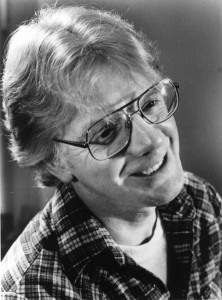“It is a sad fact that if you mention the name of Norman Kennedy to the present generation of Scottish folk enthusiasts, most of them will reply “Norman who?” Yet in his adopted homeland of America, where he has lived since 1966, he is rightly regarded as one of the finest exponents of the traditional arts of ballad-singing and storytelling.” Tom Spiers.
It is a sad fact that if you mention the name of Norman Kennedy to the present generation of Scottish folk enthusiasts, most of them will reply “Norman who?” Yet in his adopted homeland of America, where he has lived since 1966, he is rightly regarded as one of the finest exponents of the traditional arts of ballad-singing and storytelling.
In the late 1950s / early 1960s, Norman was one of the shining lights of the British folk revival. To say he was a regular visitor at the homes of such great singers as Jeannie Robertson does him a disservice. He was a friend of Jeannie, welcomed with open arms as someone she could pass her songs to in the knowledge that they would be treated with the respect, understanding and skill they deserved. Consequently, his repertoire of Scottish songs and ballads was immense, at a time when most of us depended on ‘101 Scottish Songs’ as our source of material.
But his interest didn’t stop there. His love of singing, folk lore and traditional skills, frequently took him away from his native Aberdeen, to visit family in the rural area of Methlic, where he helped on the farm, and to the Hebrides where he absorbed as much as he could of the Gaelic culture. Apart from learning the language, he taught himself to card, spin and weave the wool, which he picked off barbed wire fences. He even waulked the tweed in the traditional fashion (which made visiting him quite awkward at times, stepping over buckets of urine).
One result of this eccentric behaviour was that he usually turned up at the Aberdeen Folk Song Club immaculately dressed in a tweed suit, while the rest of us wore the universally accepted uniform of jeans and sweater. In the heady days of the Folk Revival, very firm distinctions were drawn between ‘Traditional’ and ‘Revival’ singers. Norman refused to fit into either box. He wasn’t born on a farm, or in a travellers tent, but he learned his songs orally from those who had been. He was one of the few ‘toonsers’ to be afforded the reverence normally reserved for Traditional Singers and fits more perfectly than anyone else I can think of, the accolade of Tradition Bearer.
So why has he been all but forgotten in Scotland? Simply because America swallowed him up. Mike Seeger heard him sing at the Aberdeen Folk Club in 1964 and immediately invited him to represent Scotland at the 1965 Newport Folk Festival. He went across with Bert Lloyd and Margaret Barry who were representing England and Ireland, and loved it so much he decided to make it his home. For the last 35 years, all his energy has gone into spinning, weaving, singing and storytelling for a huge audience of appreciative 2nd, 3rd and 4th generation Scots who wanted to keep in touch with their roots.
In Norman Kennedy we could not have had a better ambassador.

